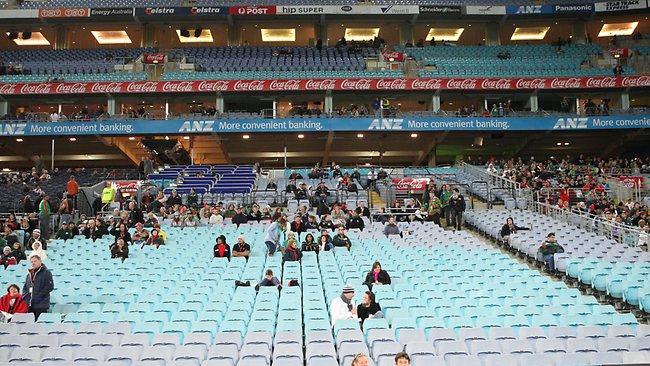Origin: Is our game’s greatest asset also its greatest curse?
Before you jump to conclusions based on the headline, let me start out by saying I absolutely love State of Origin. Everything about it – the passion, the intensity, the spectacle, the theatre – everything exemplifies what it is that makes our game so wonderful. State of Origin is without doubt the jewel in rugby league’s crown, generating more hype, more passion and more cash than any other sporting event in this country. However, as great as Origin is, it does have a dark side that often goes ignored.
State of Origin may be a great thing for the game, but in its current incarnation it is a major detriment to the game’s other major asset; the NRL competition itself. For during the seven-week Origin period, the NRL premiership becomes such a pale imitation of itself that it seriously damages the integrity of the competition. In recent years, teams featuring a high proportion of Origin players, such as Melbourne, Brisbane and North Queensland have seen their seasons compromised by being forced to field sub-standard sides on Origin weeks while often being forced to play their rep stars just days after a gruelling Origin contest the following week. Some may argue that it evens out the playing field, but it’s hardly fair to punish teams simply for having several quality players.
Sure, a quality team will generally bounce back and work its way into the finals race, but the rep season still distorts the competition’s final standings at the end of the home-and-away season. With finals being so competitive, being forced to sacrifice a game or two during the rep season can be difference between a home final and an interstate trip, or even a place in the finals itself.
Take this past weekend, for example. The in-form North Queensland Cowboys were forced to play an away fixture against a struggling Canberra side minus their four best players, while Canberra’s lone Origin representative was the out-of-sorts Josh Papalii. The Raiders were still hopelessly out of sorts but ultimately won the game, however you could mount a very strong case to suggest the Cowboys would have been victorious with their Origin players available. This immediately compromises the validity of those competition points, as the Raiders have essentially been rewarded for having a weaker squad than the Cowboys. It is a situation that has played out numerous times in recent years, and while occasionally a team that struggles during rep season recovers to win the comp, like Melbourne in 2012, more often than not it kills a team’s season.
The other major drawback to the rep season is the hit to crowd figures. In the 2013 rep period, A game at Leichardt Oval between the Wests Tigers and Melbourne barely managed to attract 5,000 fans, with names such as Robbie Farah, Aaron Woods, Cameron, Smith, Billy Slater and Cooper Cronk all out of action. This past weekend, the clash between premiership heavyweights the Bulldogs and the Roosters drew less than 20,000 in the absence of their Origin stars, a figure which may well have been doubled had the game been played between two full-strength sides. The bottom line is that fans don’t like seeing watered-down contests and many of them aren’t willing to part with their cash to watch them.
So how can the NRL rectify these issues? The obvious answer would be to have standalone Origin weeks, so that NRL sides aren’t forced to play without their best players, while alternative options include a mid-year tournament separate from the premiership or a three-week suspension of club football with each Origin match separated by a week. Unfortunately, there is one major stumbling block keeping the NRL from making changes to its rep schedule; that being their billion-dollar TV rights deal. With Channel Nine insistent on being able to broadcast a certain number of club games each week, the NRL are unlikely to make any drastic changes until they are able to renegotiate the deal in 2017.
While the only guaranteed way of restoring complete integrity to the NRL Premiership would be to shift the Origin series to the postseason, such a move would prove disastrous and is not a realistic option. Origin is the game’s most priceless commodity, but the club competition is not far behind and one of the great challenges for the game’s new administration over the next few years will be to find a more harmonious balance between the two, because allowing a 3-game series to compromise a 200-game competition is surely not the best outcome for the game’s fans.





